The Power of Case Studies in Event Management
In the evolving landscape of event management, case studies serve as vital tools that showcase strategies, innovations, and outcomes of successful events. By analyzing real-world examples across industries, event professionals can glean actionable insights to refine their practices, enhance attendee engagement, and drive organizational goals. This article delves into proven results from diverse event management case studies, illustrating how meticulous planning, technology integration, and adaptability create memorable and effective events.
Crafting Comprehensive Post-Event Case Studies
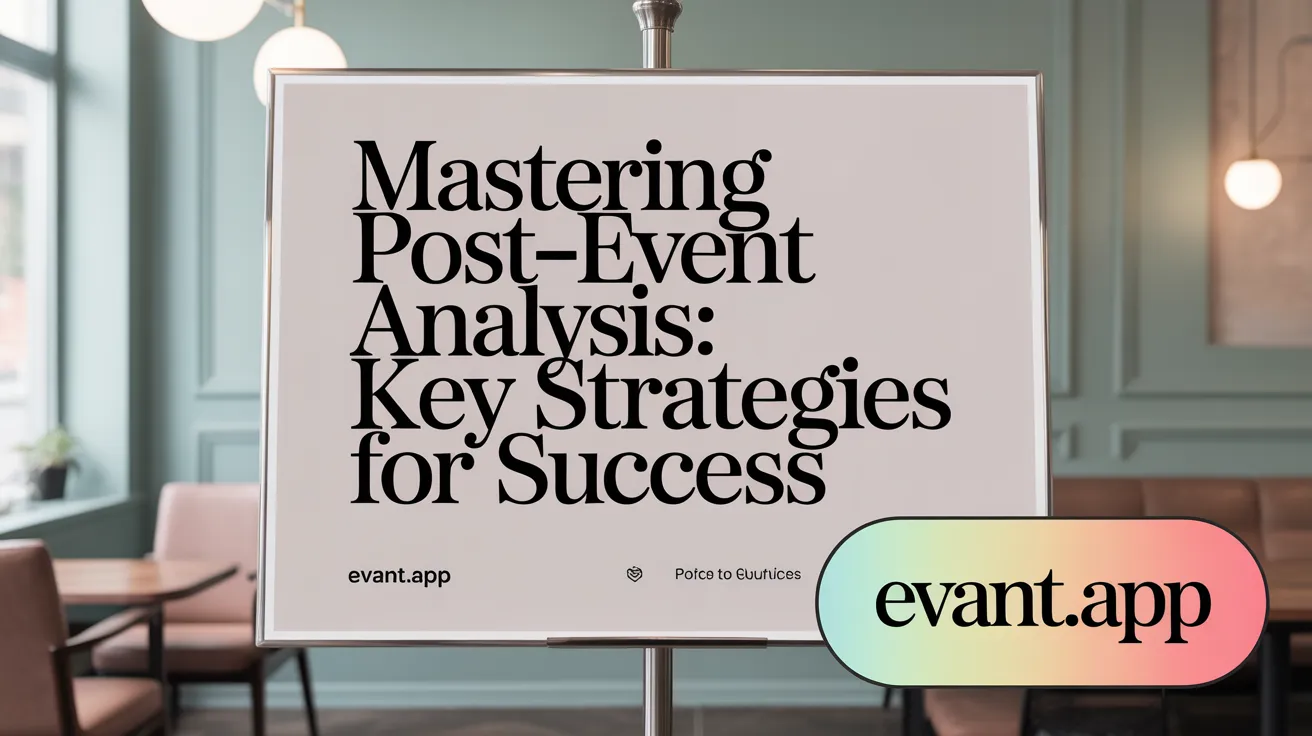
How can post-event case studies help in understanding event success?
Post-event case studies provide a structured way to evaluate an event by compiling detailed information on its planning, execution, and outcomes. This analysis helps organizations identify what worked well and where improvements are needed. Understanding these factors through a case study enhances strategic planning, making future events more effective and better aligned with organizational goals.
What types of data are essential for effective case studies?
To create a meaningful case study, collecting a variety of data is crucial. This includes measurable figures like attendance numbers, fundraising revenue, and expenses. Engagement metrics and participant feedback also play important roles in assessing how attendees experienced the event. Additionally, testimonials from volunteers, sponsors, and guests provide personal insights into the event's impact and areas that could be improved. These elements are fundamental in event data collection, attendance and fundraising metrics, and gathering event testimonials.
How can technology assist in creating effective case studies?
Leveraging event management software significantly simplifies the process of gathering and organizing data for case studies. Tools like Greater Giving event management software track details related to event sponsors, registration, donors, and other critical metrics. This automation allows event organizers to generate comprehensive reports more efficiently, leading to more accurate and insightful case studies. Using such technology enhances event metrics tracking and event report generation.
Why is incorporating testimonials important for insights?
Testimonials add a human dimension to data by reflecting attendees' and stakeholders' authentic experiences. These firsthand accounts can highlight strengths and reveal issues that might not appear through quantitative data alone. Including these narratives enriches the case study, making it a more valuable resource for understanding the event's full impact. This approach is key in gathering event testimonials and enhancing donor engagement strategies.
What are the benefits of using case studies for future improvement?
Utilizing post-event case studies aids organizations in refining their approaches, improving donor engagement, and optimizing resources. Case studies serve as learning tools to avoid past mistakes and replicate successes, ultimately contributing to more impactful and well-executed events in the future. This process supports improving fundraising events and strengthens strategic event planning.
Innovative Event Management Platforms Delivering Success Globally
What benefits have organizations experienced using Eventtia?
Organizations leveraging Eventtia Testimonials's event management platform have seen notable improvements in operational efficiency and event customization. Enhanced attendee experiences have been a consistent outcome, with the platform enabling seamless engagement across various event types. Users report streamlined processes and the ability to tailor events more precisely to their audiences, ensuring more meaningful participation.
How does Eventtia support various event formats?
Eventtia is designed to accommodate diverse event formats including virtual, hybrid, and in-person gatherings. It offers centralized operations that simplify event logistics, along with advanced personalization tools that cater to individual attendee preferences. The platform integrates IT solutions that allow organizations to manage numerous events globally, adapting to scale and complexity with ease.
Customer success stories across sectors
Major organizations such as Pierre Fabre Group, Pernod Ricard Group, NAOS Bioderma, and EF Education First demonstrate the wide applicability of Eventtia. For example, France Renouvelables Event Management manages up to 20 events annually, while ProColombia Event Highlights conducts over 130 events featuring thousands of meetings. These cases illustrate Eventtia's flexibility and robustness in supporting education, commerce, government, and private industry sectors worldwide.
The adaptability and comprehensive features of Eventtia empower organizations to elevate their event management strategies, drive higher engagement, and execute events successfully across a multitude of settings.
Strategies That Drive Successful Event Execution
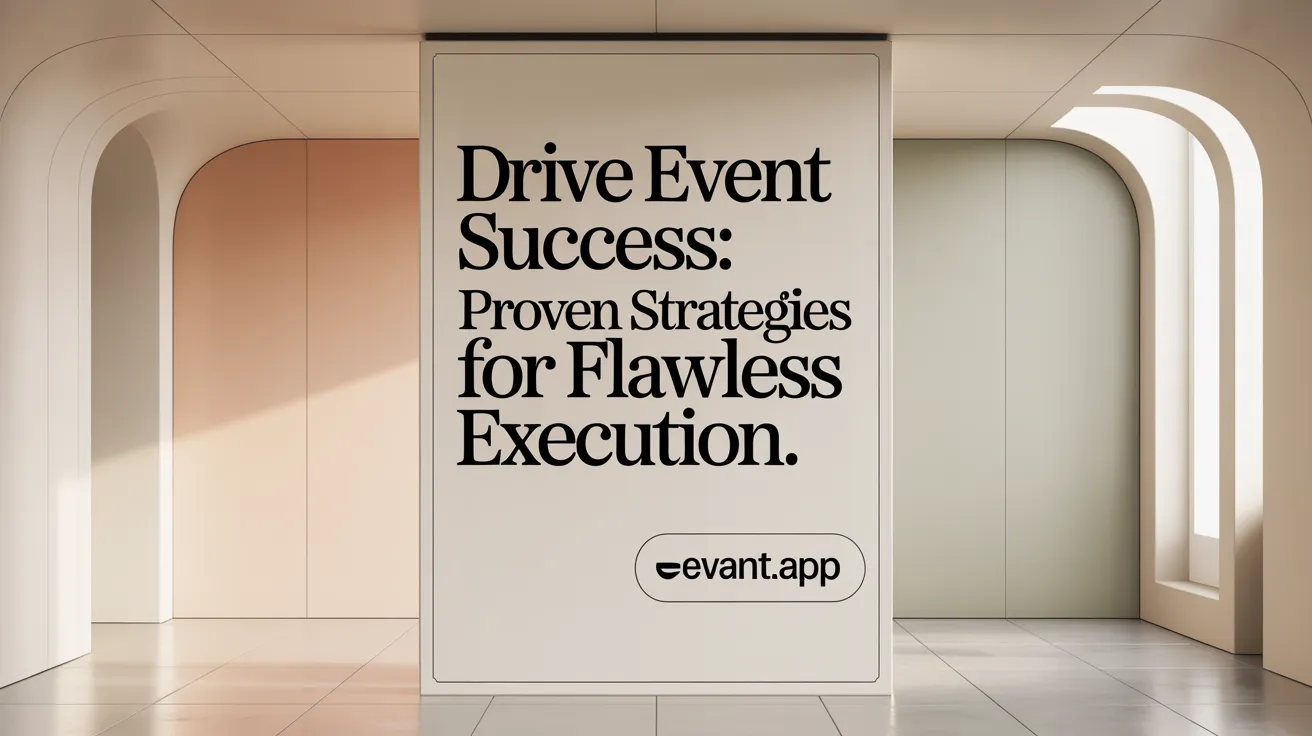
What role do SMART goals play in event success?
Establishing SMART goals—specific, measurable, attainable, relevant, and timely—is fundamental in effective event management strategies. These goals provide clear direction, helping organizers focus on precise objectives and milestones. By defining what success looks like, SMART goals guide every stage of planning and execution, ensuring efforts remain aligned and measurable.
How do venue choice and budget planning impact event outcomes?
The selection of a venue can significantly influence attendee engagement and the smooth running of the event. Hosting at a strategic location, such as the organization's premises or a well-equipped venue, enhances experiences and supports logistical needs (Choosing the right event venue).
Budget planning involves listing and prioritizing expenses, allocating funds wisely, and seeking opportunities for cost savings, like in-kind donations. Effective budgeting guarantees resources are optimally distributed, maintaining financial health while fulfilling event goals (Event budget planning tips.
What is the role of marketing strategies in event success?
Tailored marketing strategies target specific audience segments using preferred communication channels. This customization maximizes outreach and fosters higher engagement levels (Event marketing strategies). Incorporating diverse messaging and channels ensures the event appeals to various attendee demographics, boosting both attendance and participation.
Why is monitoring event metrics important?
Tracking metrics such as attendance numbers, ticket sales, expenses, and participant demographics is essential (using event metrics for evaluation. These data points enable organizers to evaluate the event's success accurately, gauge donor or member support, and identify improvement areas. Continuous measurement informs future planning, promoting more effective and impactful events (event metrics tracking).
Employing these strategies collectively leads to organized, impactful events that meet organizational goals and deliver memorable experiences.
Diverse Case Studies Demonstrating Event Management Excellence
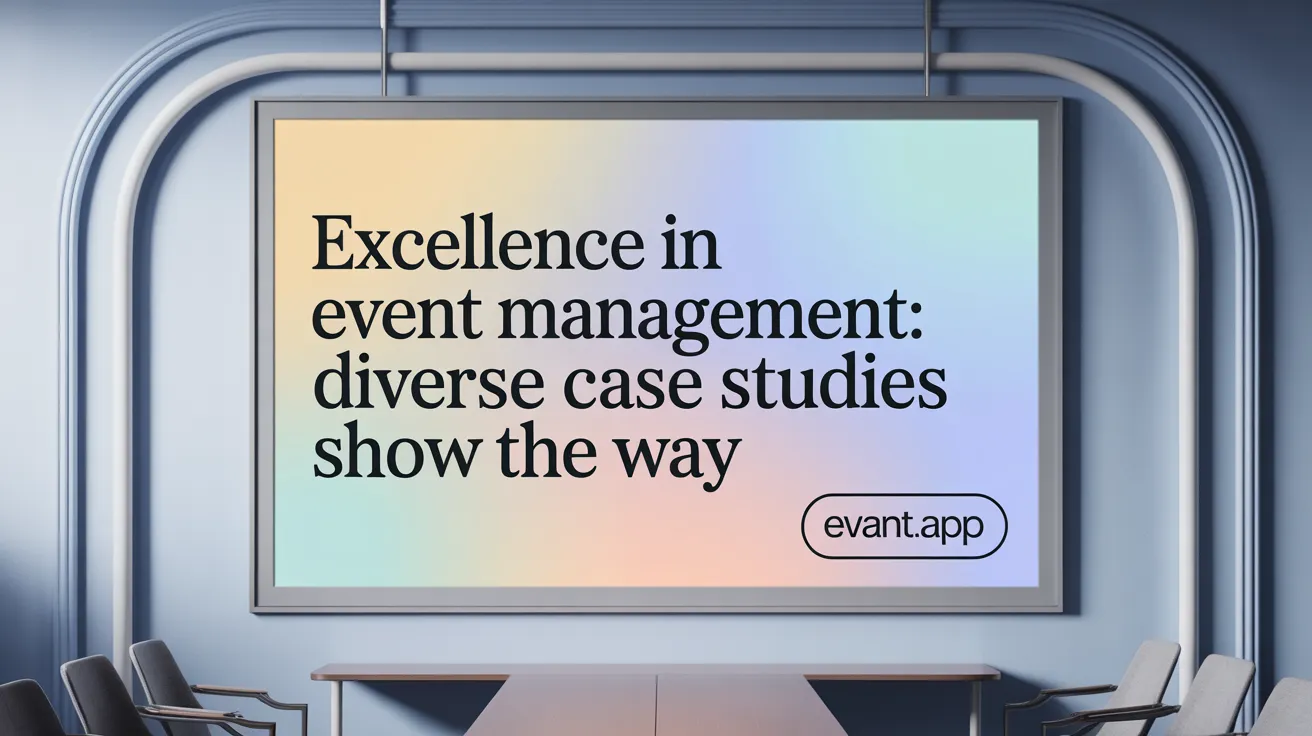
How does Eventify showcase versatility in event management?
Eventify exhibits remarkable adaptability by managing a wide range of events. Their portfolio includes charity dinners, themed brunches, corporate away-days, and large networking carnivals. They efficiently handle hybrid, virtual, and in-person events with complex logistics such as international coordination and innovative themes. For example, Eventify has organized conferences at prestigious venues like the Proud Embankment and Hoxton Hotel, while also delivering immersive themed parties and large-scale virtual conferences. For more on their work, see Event Management Case Studies.
What unique approaches has Extraordinary applied in event production?
Extraordinary transforms client visions into memorable experiences through innovative event production. Their approach includes immersive sound designs, custom staging, and interactive technologies. Noteworthy projects include silent conference solutions for large-scale events like MongoDB.local NYC and interactive 360 video experiences at music festivals. They also deliver elegant private celebrations, such as weddings, featuring bespoke audio and live performances. Extraordinary’s work emphasizes creative engagement alongside logistical excellence. Explore their successes in Extraordinary event production successes.
What types of events has Glow Global Events successfully executed?
Glow Global Events has a diverse portfolio encompassing culturally significant events, high-profile galas, and important political summits. Their projects range from indigenous arts celebrations like the First Peoples Fund anniversary to major galas such as the Night of Opportunity. They have supported educational causes with the Student Leadership Network’s 25th anniversary and facilitated forums addressing critical political issues like the American Democracy Summit. Additionally, Glow Global executes digital campaigns focused on empowerment and community engagement. Discover their work in Glow Global Events case studies.
Examples of varied event types and client successes
These case studies illustrate the broad spectrum of successful event management, from adapting to different formats and scales to incorporating culture and technology:
| Company | Event Types | Unique Strengths |
|---|---|---|
| Eventify | Charity dinners, corporate festivals, virtual conferences, thematic parties | Adaptability, complex logistics (Event Management Case Studies) |
| Extraordinary | Festivals, corporate events, private parties | Immersive production, interactive tech (Extraordinary event production successes) |
| Glow Global Events | Cultural ceremonies, galas, political summits, digital campaigns | Culturally impactful, diverse expertise (Glow Global Events case studies) |
Each showcases how tailored strategies, creativity, and operational excellence drive successful event outcomes across various sectors and formats.
Success Stories Reflecting Growth and Innovation in Event Planning Businesses
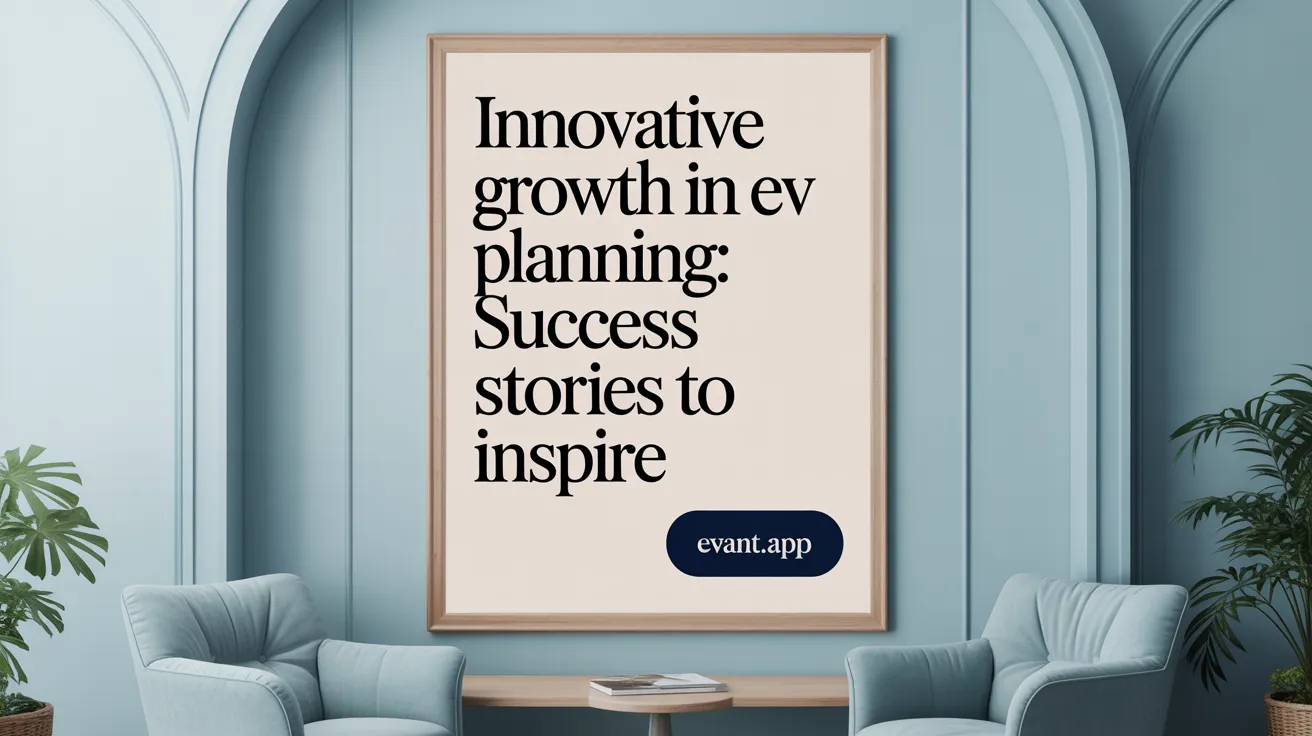
What are examples of successful event planning business growth?
Several event planning businesses showcase impressive growth stories through creativity and client focus. Interactive Entertainment Group started with a $27,400 investment and now earns $4.8 million annually, serving high-profile clients like Discover and Salesforce. Mystery, founded with just $1,000, specializes in surprise experiential events, engaging over 20,000 users yearly and making $1.8 million. Entire Productions evolved from a double-booked performer’s challenge to a $1.3 million company run by a six-person team. These examples highlight how innovative approaches and client satisfaction drive expansion. For more on these stories, see Event Planning Business Success Stories.
How do niche specializations contribute to event planning success?
Niche markets have been pivotal for success in event planning. Mystery's focus on surprise experiential events meets a unique market need, creating memorable engagements. VIPER by KCH evolved from guest check-in management to a nightlife event specialist, addressing a specific industry pain point and growing into a $1 million-plus business with 26 employees. Specializing allows companies to differentiate in competitive landscapes, improve service quality, and foster loyal client bases. Read about Effective Event Management Strategies for insights on specialization and success.
Creative and Operational Growth
Starting from modest investments, these companies grew by blending creativity with operational excellence. From immersive themed parties to complex logistics at high-profile venues, they expanded their capabilities. Emphasis on teamwork, innovation, and technology has fueled their ability to scale while maintaining quality. Explore Event Management Case Studies for examples of creative and operational growth in practice.
Revenue Milestones and Client Portfolios
The revenue milestones of these firms reflect their success: from $420,000 annual earnings for a small two-person team in event décor (Simply Decor and Events) to millions generated by larger enterprises. Their impressive client portfolios include corporations, media giants, and large-scale event hosts, showcasing trust and reputation in the industry. Check out more about Entrepreneur Power Hour and EventBookings for client portfolio highlights.
Specialization in Unique Event Niches
By focusing on unique niches like surprise experiential happenings, nightlife management, or specific thematic events, companies cater to targeted audiences. This specialization drives differentiation and positions them as leaders within their segments, facilitating sustained growth and innovation. Additional insights are available in Strategic Event Planning and Donor Engagement Strategies.
Advanced Technologies Enhancing Event Engagement and Efficiency
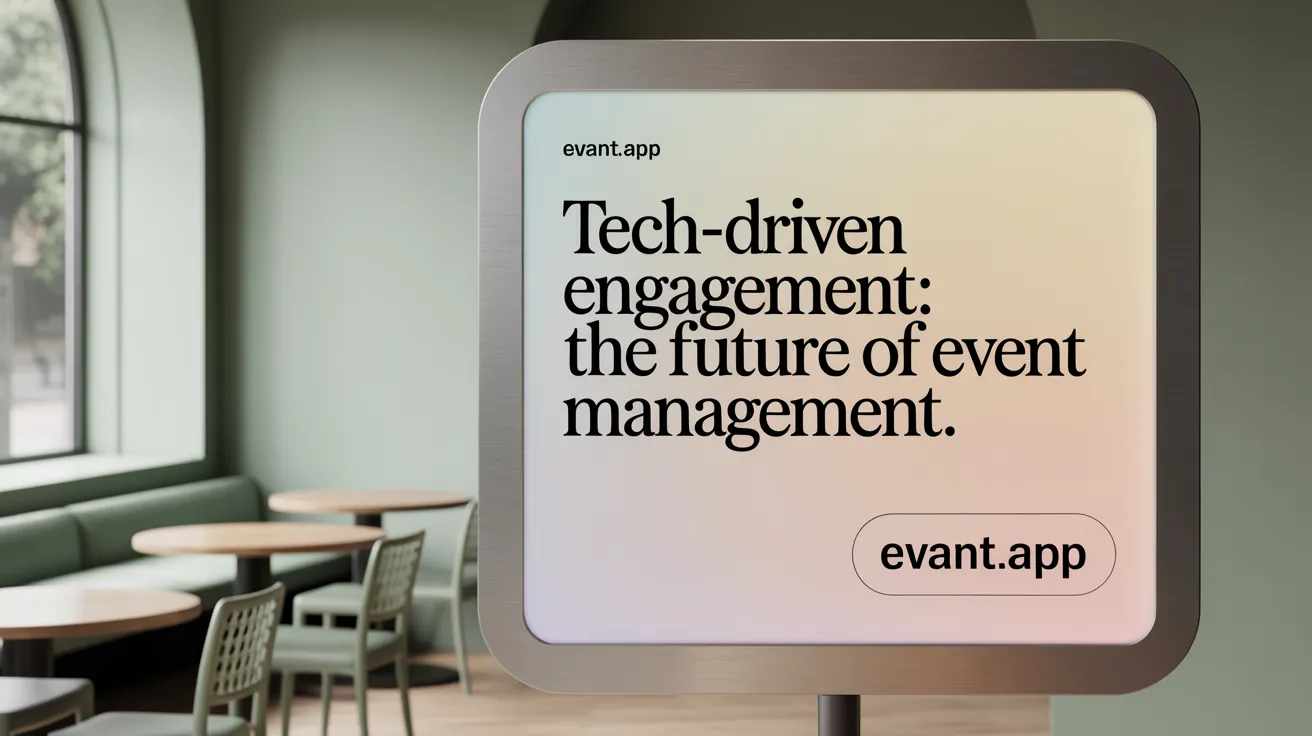
How have event apps improved attendee participation?
Event apps like Swapcard have revolutionized attendee engagement by offering highly personalized event experiences. Users can create custom schedules tailored to their interests, facilitating better time management and increased session attendance. Swapcard also supports social distancing by managing crowd flow and personalized programs based on ticket types. With features such as interactive messaging and access to detailed event content including abstracts and floor plans, the app fosters deeper engagement and networking opportunities among attendees.
What technology trends are shaping event management in 2025?
The event industry is rapidly evolving with several emerging technology trends. Hybrid events in 2025, combining in-person and virtual components, are becoming the norm, broadening accessibility and participation. Integration of AI and automation streamlines processes like registrations, notifications, and personalized attendee communications. Interactive technologies, including live polling, Q&A sessions, gamification, and immersive AR/VR experiences, are enhancing engagement and creating memorable experiences. Sustainable digital practices like paperless registration and digital ticketing also contribute to reducing environmental impact.
Data analytics and real-time metrics
Advanced data analytics allow organizers to track critical performance indicators in real time, enabling swift strategic adjustments during events. Platforms equipped with these capabilities help measure session popularity, attendee demographics, and engagement levels, providing actionable insights to optimize future planning. Enhanced reporting tools also aid in demonstrating event ROI to stakeholders.
Integration of interactive technologies
Interactive tools embedded within event platforms encourage active participation. From gamified challenges that boost motivation to live polling and Q&A that facilitate direct audience interaction, these technologies transform the passive attendee into an active contributor. Incorporating AR/VR adds immersive layers, creating highly engaging environments that resonate beyond traditional event boundaries.
Best Practices and Lessons Learned from Major Event Management Case Studies
What are key lessons from large-scale event management case studies?
Large-scale events, such as international championships and major NASCAR races, demonstrate that success hinges on strong collaboration among multiple agencies and stakeholders. For example, effective traffic and safety management at the Kansas Speedway involves coordinated efforts between highway patrol, transportation departments, and local police. Detailed contingency plans and infrastructure improvements developed years ahead enhance operational efficiency and safety. For more on Kansas Speedway traffic management and large-scale international event management, see case studies highlighting proven event management results.
Adaptability is crucial; planners often face last-minute changes like venue switches or vendor cancellations and must respond quickly with innovative solutions. Leveraging technology such as real-time traffic signal adjustments and event apps enables smoother attendee experiences and improved safety measures. Discover real-time event metrics and KPIs and interactive event technologies that drive these innovations.
How do inclusivity and feedback contribute to event success?
Incorporating Diversity, Equity, Inclusion, and Belonging (DEIB) strategies ensures event programming resonates with diverse audiences and broadens impact. Partnering with minority-owned businesses and creating inclusive content fosters long-term trust and stronger community engagement. Learn about the client-centric approach in event planning and feedback and continuous improvement.
Continuous feedback loops—gathered during and after events from volunteers, sponsors, and attendees—allow planners to identify areas for improvement and make real-time or future adjustments. This feedback-driven improvement enhances the quality of events and supports repeat attendance. Check insights on event engagement and feedback and gathering event testimonials.
What are traffic and safety management examples?
The Palace of Auburn Hills employs adaptive traffic signal timing using integrated technology and inter-agency coordination, significantly reducing load-in and load-out times to less than 25 minutes. Such efficient collaboration benefits attendees, staff, and local residents by minimizing congestion and improving safety. See detailed examples of Palace of Auburn Hills traffic plan and event traffic management technological integration.
How does creative design and real-time adaptability improve events?
Creative elements, such as immersive themed parties and virtual reality environments, elevate attendee engagement. Real-time adaptability—including flexible vendor partnerships and dynamic scheduling—helps event teams respond effectively to unexpected challenges without compromising the attendee experience. Explore immersive themed parties and AI-driven event personalization for enhancing engagement.
These combined practices showcase a framework for planning, executing, and continuously improving large, complex events that deliver memorable and safe experiences. For comprehensive insights on effective event management strategies and strategic event planning, visit the linked resources.
Harnessing Case Study Insights to Elevate Event Management
The compilation and analysis of event management case studies are invaluable in advancing the industry’s standards and outcomes. Through detailed examination of diverse event formats, technological innovations, strategic planning, and adaptability, professionals can continuously refine their approaches and navigate challenges effectively. As demonstrated across global success stories, leveraging data, embracing new technologies, fostering collaboration, and learning from past experiences are essential elements that drive memorable, impactful, and well-executed events. Embracing these insights ensures continued growth and excellence in the dynamic field of event management.
Related Blogs


How Community Churches Should Leverage SMS to Boost Engagement
Michael PedoeemStruggling with low church attendance? Discover how to leverage SMS to reach 98% of your congregation instantly and review the top 5 church communication platforms.
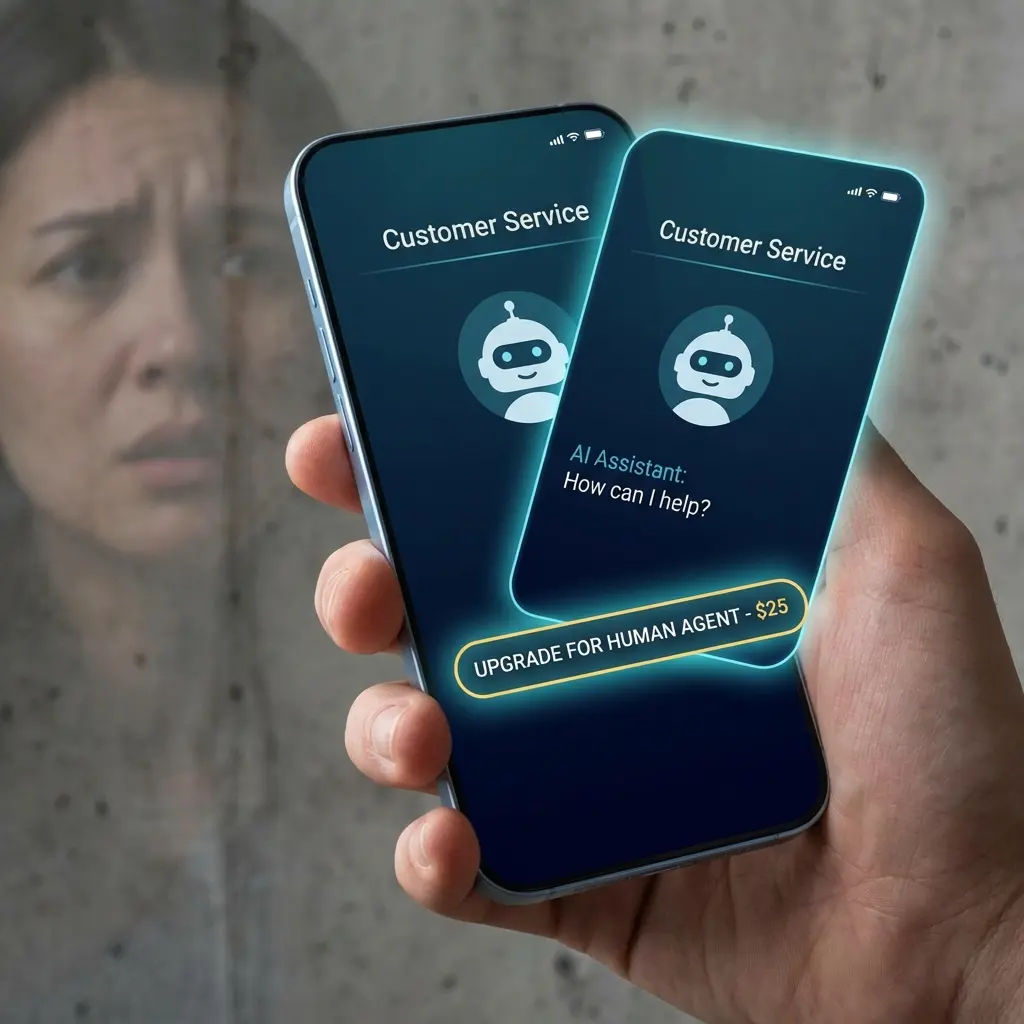

SMS for Churches: A Guide to Better Engagement
Michael PedoeemLearn how SMS for churches can boost engagement, improve communication, and streamline event management. Discover best practices for church texting today.
Ready to transform your community










